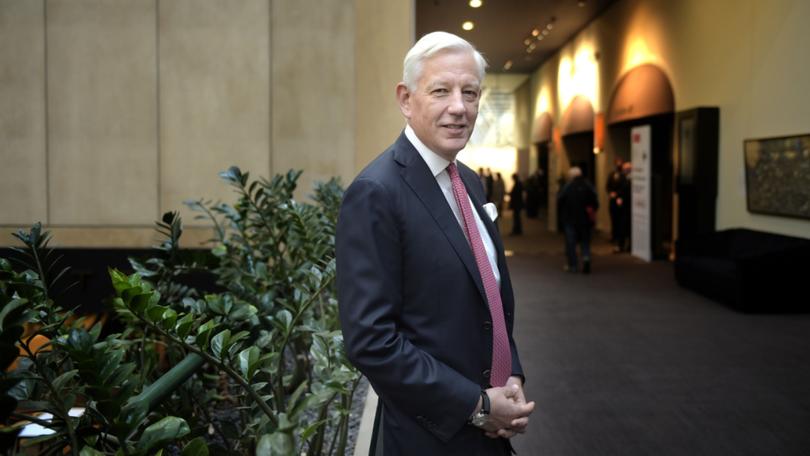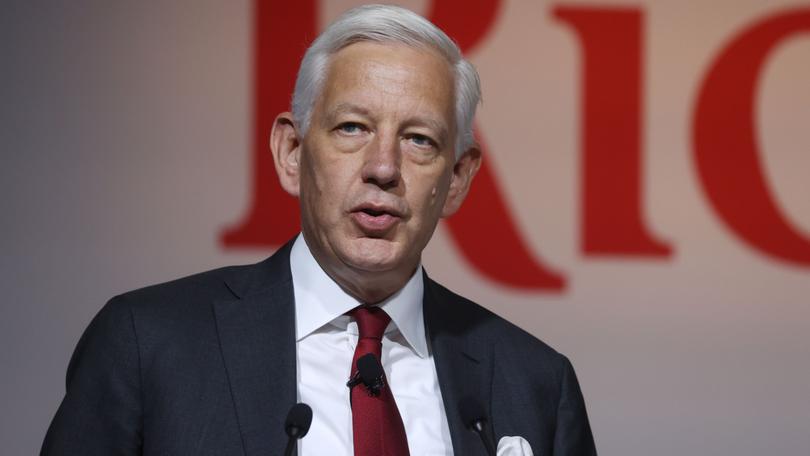Rio Tinto chair says there’s a large technological gap holding back world’s efforts to decarbonise

Rio Tinto chair Dominic Barton has warned shareholders there is a large technological gap holding back the world’s efforts to decarbonise, and that permitting processes aren’t helping.
Mr Barton, who leads one of the largest mining companies in the world, addressed shareholders in London on Thursday at an annual general meeting.
Ahead of formal proceedings, Mr Barton highlighted what he said would be the “immense” challenge of decarbonising the world’s economy with the level of technology available today.
Sign up to The Nightly's newsletters.
Get the first look at the digital newspaper, curated daily stories and breaking headlines delivered to your inbox.
By continuing you agree to our Terms and Privacy Policy.He said Rio was “serious about what it takes” to reduce its carbon footprint and the miner was taking action to deliver, but conceded there were big challenges ahead.
“The challenge of decarbonising the world’s economy and the activities of societies across the world is immense,” he said.
“There is a large gap between what current technology can deliver and what is needed for the global energy transition.
“This will require a significant research and development effort to find new technologies and better ways of doing things.”
Rio has pledged to reduce its scope one and two emissions by 15 per cent by next year, 50 per cent by 2030 and hit net zero by 2050.
The company has been openly candid in the past about climate targets, with chief executive Jakob Stausholm in the past 12 months saying he regretted setting such aggressive targets in hindsight.
Recent milestones in Rio’s decarbonising mission include signing two agreements to buy 2.2 gigwatts of wind and solar power for its aluminium assets in Queensland.

Electricity makes up about 26 per cent of Rio’s emissions in the Pacific and would therefore be essential to run on renewables, Mr Barton told shareholders.
But he said investment in renewable energy and infrastructure had been “lagging”, and referencing research from the International Energy Agency, said that $4 trillion would need to be spent by the end of the decade for the world’s energy system to reach net zero by 2050.
Mr Barton also said that permitting delays, not mining operations themselves, was one of the biggest obstacles in reducing emissions.
“We know we need mining to help avert a climate disaster, but this reality is sometimes challenged at a local level. Even where governments are supportive, one of the biggest challenges isn’t the mining operation itself, but the permitting process,” he said.
Mr Barton drew an anecdote from the World Economic Forum in 2023 when wind turbine manufacturer Vestas Wind Systems said there was “four times more wind generation capacity caught in permitting delays than under construction in Europe.”
